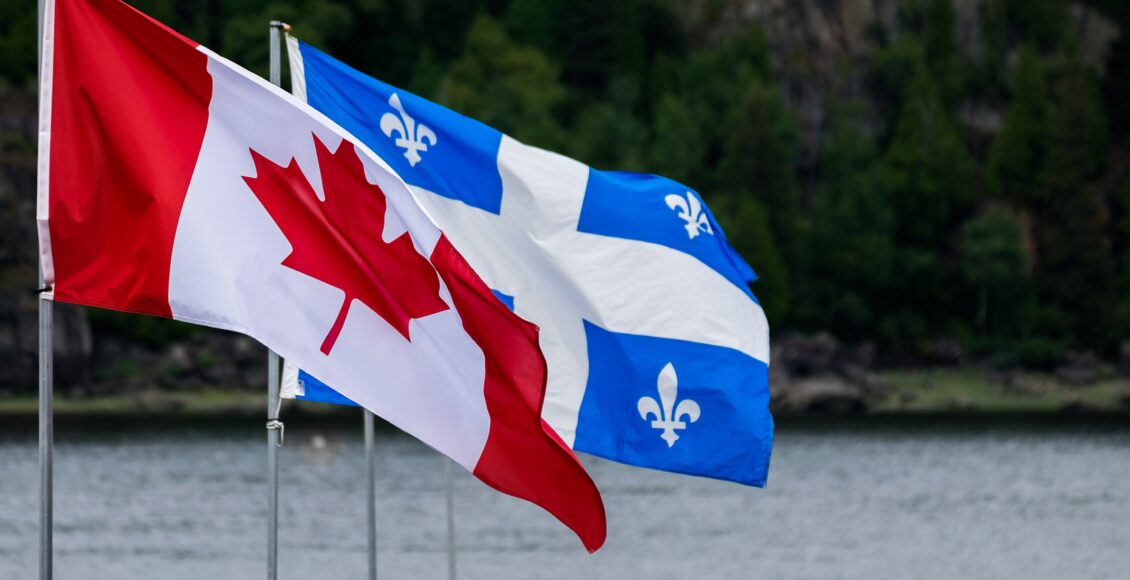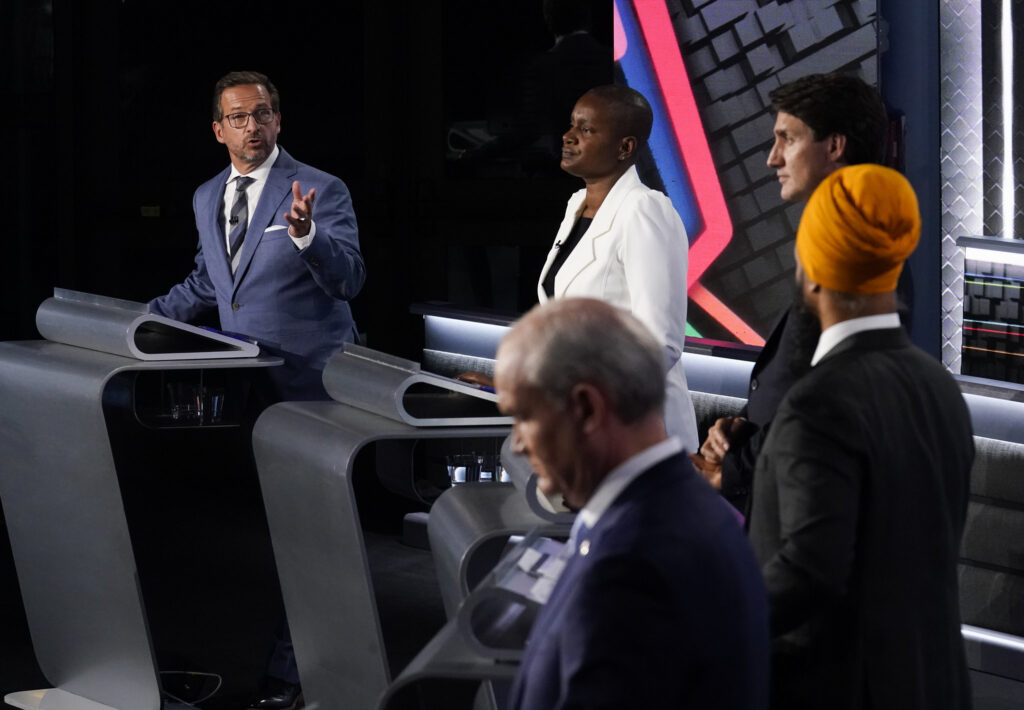From Sovereignty to Solidarity: La Belle Province Stands Up for Canada Ahead of Tomorrow’s Federal Election

President Donald Trump’s administration has imposed stringent tariffs on Canada, marking the most aggressive trade measures against the country in modern history. The sweeping tariffs, targeting key Canadian exports such as aluminum, lumber, agricultural products, and manufactured goods, threaten to devastate the Canadian economy. Undeterred by the fight, the Canadian response has been swift and forceful. Prime Minister Mark Carney announced billions in retaliatory tariffs on American imports, the most extensive such package in Canadian history. His government has also initiated challenges through the World Trade Organization and begun expediting deals with European and Asian partners.
Beyond the economic countermeasures lies something more profound—a swelling tide of Canadian national sentiment. Carney’s April 3rd declaration that his government “will never cease to defend the interests of Canadians” has resonated across provincial boundaries. Canadian flags have proliferated in cities from Victoria to Halifax, and social media campaigns promoting Canadian-made products have gained unprecedented traction.
Nowhere is this shift more surprising than in Quebec, where the surge in Canadian patriotism is upending decades of political orthodoxy. “There’s a Quebec nationalism and a Canadian nationalism,” explained a voter in Quebec City’s riding of Beaupot—Limoilou. “This time, the second is stronger than the first.”
For tomorrow’s federal election, this newfound pan-Canadian solidarity spells political trouble for the Bloc Québécois—the federal party that has championed Quebec sovereignty since its founding by Lucien Bouchard in 1991.
After years in the political wilderness following its heyday in the 1990s—when it even served as the Official Opposition in the House of Commons—the Bloc experienced a resurgence. In the 2019 federal election, the party captured approximately one-third of Quebec’s vote, securing 32 parliamentary seats—a 22-seat gain that was maintained in the 2021 election. Since then, the Bloc has remained steadily ascendant, particularly in 2024, when it led polls across Quebec. Last September, it even won a by-election in the traditionally Liberal stronghold of LaSalle—Émard—Verdun in Montreal, signalling strong and growing support.

However, as Trump’s protectionist policies began threatening Canada, polling shows support has shifted dramatically toward Carney’s Liberals in Quebec. The Bloc now hovers around only a quarter of projected votes in the province, a stunning reversal after months of momentum.
The explanation for this shift lies primarily in economic pragmatism. Quebec’s relationship with the US market is deeply entrenched—more than 70 per cent of the province’s exports go to the US, representing $87.3 billion in 2023 alone. Major industries like aerospace, aluminum, and forest products are especially vulnerable to American tariffs, heightening the province’s exposure to economic fallout.
Faced with this reality, many Quebecers have come to believe that defending their provincial interests now requires a unified national front. In what feels like an existential struggle for economic survival, even long-time supporters of sovereignty are standing alongside federalists. The crisis has blurred once-firm political lines.
This represents a notable evolution in Quebec’s complex relationship with the rest of Canada. From the conquest of New France to the Quiet Revolution and the narrow defeat of the 1995 referendum, Quebec has maintained a distinct identity often at odds with Ottawa.
The Bloc’s leader, Yves-François Blanchet, has attempted to navigate this shifting landscape by accusing Carney of “exploiting and instrumentalizing a temporary trade crisis with the US to permanently weaken Quebecers’ right to live in French.” In a press statement on April 8, Blanchet asserted that only the Bloc can protect Quebec from both economic aggression and federal overreach. On April 25, he went even further, calling Canada “an artificial country.” While there has been some recovery for the Bloc in the last two weeks of the election campaign, these arguments appear to be losing traction as voters shift their focus toward immediate economic concerns.

Trump’s aggressive trade posture has accomplished what generations of Canadian political leaders could not—building bridges between Quebec and the rest of Canada, where decades of internal dialogue had struggled. Whether this unity persists beyond tomorrow’s vote remains an open question, but for now, Quebec’s distinct national aspirations have been temporarily eclipsed by a broader sense of Canadian solidarity.
Edited by Willa Morrison
Featured Image: “2016-08 Canada Q Flags” by 0x010C is licensed under CC BY-SA 4.0.
